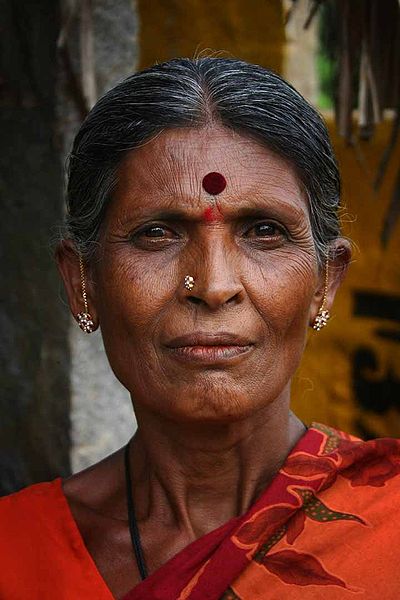Council Orders Indian Girl to be Raped as Punishment for Her Brother's Crime
/Allyson Cartwright, Contributing JournalistLast Modified: 00:58 p.m. DST, 15 July 2014
SWANG GULGULIA DHOURA, India — A 13-year-old girl in a rural Indian village was condemned to be raped by the head of her village as a punishment for her older brother. The girl's brother, according to CNN, attempted to rape a married woman, and as his punishment, the woman's husband was ordered to rape the man's younger sister.
The woman that was allegedly attacked, Suguna Devi, is the daughter of the village's headman, Ghosal Pasi, The New York Times reported. She was groped by the teenage girl's older brother, Harendra Pasi, after he entered her hut in the night after drinking a "kind of rice beer." He was thwarted by the woman's husband, Nakabandi Pasi, after her screams awoke the village.
The morning after the incident, the father of the teenage girl and the alleged assaulter went to Ghosal Pasi and asked them to reach some kind of terms. He says he told the head man, "My son did wrong, and we are willing to take the punishment. if you want to impose a punishment, then beat him," but he did not receive an answer from him.
Despite his efforts, the local council that afternoon convened to discuss the punishment for the attempted rape. The local council determined that the husband raping the teenage sister of his wife's attempted rapist would be retribution, despite the girl having no involvement in the case.
The local council that ordered the rape, known as panchayats in India, act as the judicial system for rural villages. The male-dominated council are highly ranked according to Indian caste governance and thus have the authority to punish indiscriminately. They are known in India to deliver harsh, medieval sentences. CNN says that some of their rulings include forcing women to marry their rapists, some brides as young as six, and ordering gang-rapes. In a culture where a woman is a man's property and her "honor" is her value, raping woman is seen as a severe punishment for men.
After the panchayat made the ruling, the teenage girl said that the wife and her husband came to her home. According to CNN, the girl told reporters that the wife, "dragged me out of my house. She handed me over to her husband and told him to take me away to a nearby forest and rape me." And he did.
The father of the girl, Munna Pasi said that no one from the village stepped in to help save his daughter. He told reporters, "My wife wept, but nobody listened. My daughter said, 'Save me, save me,' but nobody listened. All these people became blind when he was dragging my daughter away." A neighbor, Sunita Devi, and another woman heard the girl's screams did not step in claiming, "We did not know he was going to rape her."
However, the girl was raped by the husband of Suguna Devi in an attack that lasted forty-five minutes, according to The New York Times. They say she then limped an hour's distance to the nearest police station to report it. Since then police arrested the headman Ghosal Pasi and the husband of Suguna Devi in relation to the girl's rape and the girl's brother, Harendra Pasi, in connection with the attempted rape of Suguna Devi.
The children of the headman Ghosal Pasi, Suguna Devi and her brother Gupta Kumar continue to proclaim his innocence in ordering the rape of the young girl. Gupta Kumar says, "My father did not order anything. Out of anger my brother-in-law did this thing." While Suguna Devi promises that if the police release her father and Munna Pasi, the girl's father drops the charges then, "if something will happen, people will go to the police station."
Vinod Vishwakarma, head of an elected village council involved in this area is not so convinced that this incident will discredit the panchayat system. He tells The New York Times, "There is a practice here, to sort out matters themselves." Harkening back to the neighbors who did nothing, Vishwakarma says, "I spoke to some women, they said if something like this will happen in our village again we will oppose it. But when the girl tried to seek help from people, they turned away their faces. That's the fact."
One of those who is attempting to defy the panchayat system by pressing charges against the headman Ghosal Pasi is Munna Pasi, the girl's father. He is pressured by his village to drop the charges, but he stands firm declaring, " When this was done to my family and my daughter, nobody came forward to help us. Why should I be lenient to anybody?"
With mounting hostility from the other villagers for turning in their headman, district police have also placed two armed guards outside the girl's hut and politicians have come by offering small cash gifts and foodstuffs.
Follow Allyson on Twitter Twitter: @nahmias_report Contributing Journalist: @allysoncwright
Related articles
Indian Girl's Rape Called Case of Eye-for-Eye Village Justice (rss.nytimes.com)
Indian 13-Year-Old Raped as Retribution For Her Brother's Crime (jezebel.com)
Jharkhand: Minor Dalit girl raped on orders of Panchayat (indiavision.com)
Teenager Raped in Jharkhand: Man Aimed to Avenge her Brother's Attempt to Molest Neighbour (ibtimes.co.in)
Jharkhand: NCW demands action for minor raped as punishment for brother's crime (indiavision.com)
















